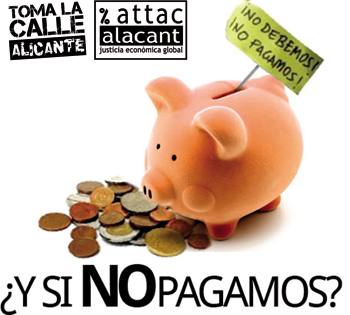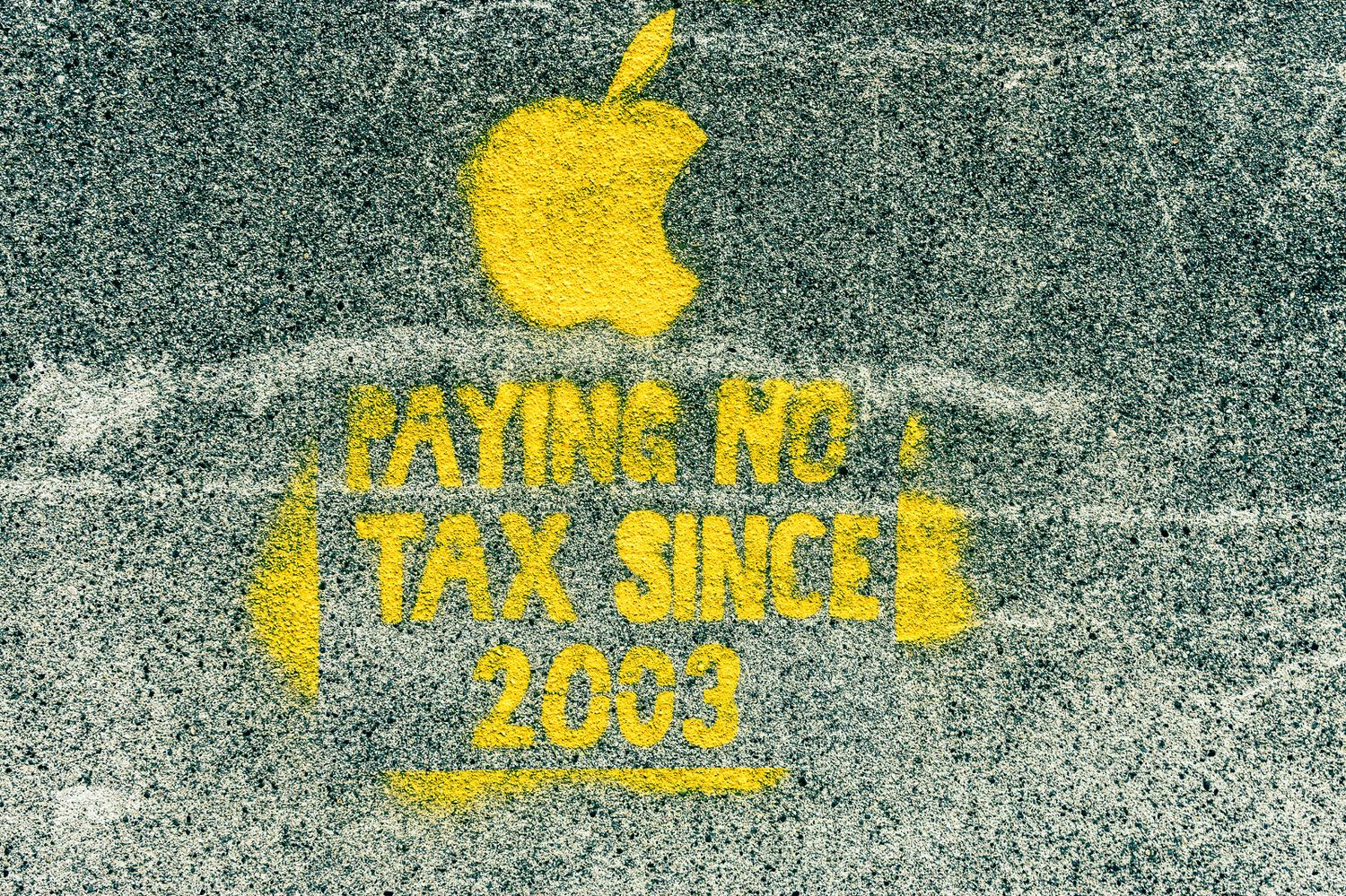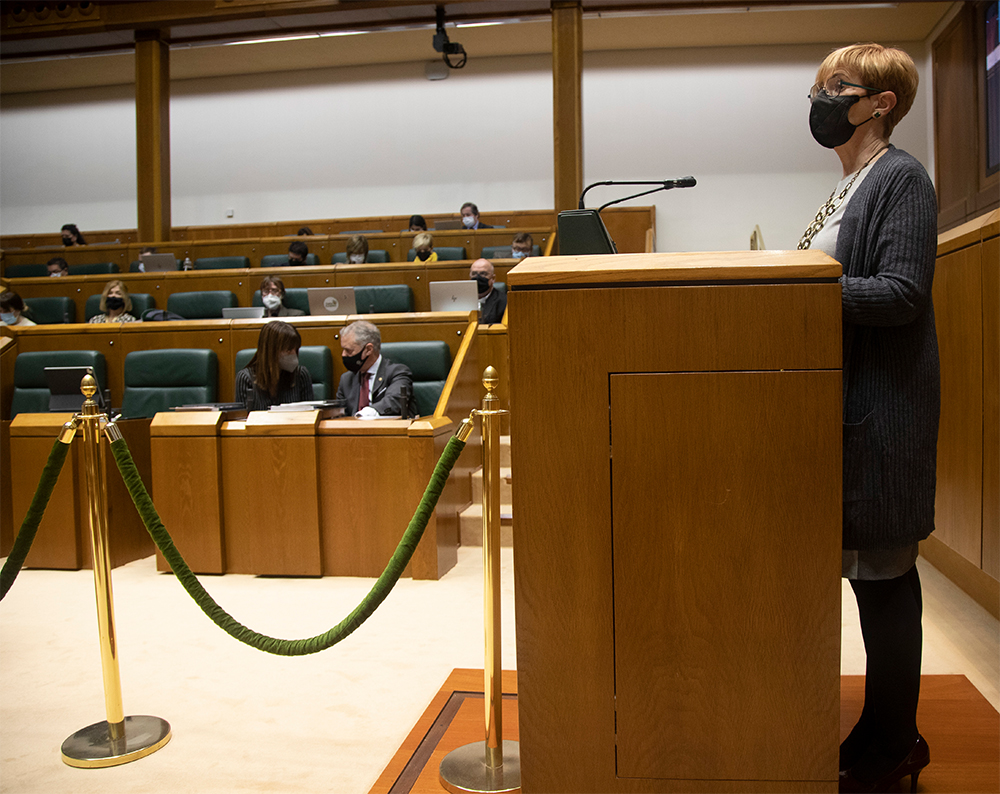Who steals from our money and where does it take it?
- Until recently, the World Bank and the International Monetary Fund felt squeezed by the people of the poorest countries. Now Europe is the laboratory of the same policies: slimming states on the pretext of public debt. The alterglobalists propose auditing the debts of public entities and not paying the unjust ones.

It is better to forget what has happened so far, says the Economic Counsellor of the Autonomous Government of Murcia (Spain), Juan Bernal, to whom the journalist has asked how they have come to this great deficit. In Spanish it becomes more evident: “Sometimes we haven’t come to this” (El País, May 15, 2012, p. 9). Now that the tsunami has caught us, in the turmoil of the catastrophe, the threat of the corralito in the throat... better to forget about the previous ones and become somehow. Well attached, the prefecto.Damien Millet and Eric Toussain say
the opposite in the AAA. In Audit, Annulation, Autre politique (Audit, Elimination, Other Policy): let's talk about how we got here. In other words, workers and citizens in general should not accept that all the improvements achieved in living conditions in recent decades disappear in exchange for paying off the debts of the states.
XXI.eko This detail explains very well the change that the crucible has brought: The organization that Millet and Toussaint are working on and have published the book to them is called the CADTM Committee pour l'Annulation de la Dette du Tiers Monde, the Commission for the Elimination of Third World Debt. Seeing the CADTM now calling for an audit of the public debt of the rich countries shows how far the global multinationals, the World Bank and the International Monetary Fund have come, which are beginning to spread to the entire planet, the neoliberal policies implemented three decades ago in poor countries. Millet is a professor of mathematics in France and Toussaint, a doctor of political science and leader of the ATTAC movement.
The authors speak with this “AAA” of the title: “In order to save the AAA rating of their countries, the European authorities, in cooperation with the European Commission and the International Monetary Fund, impose on their citizens austerity, social regression and the violation of human rights.”
The 178 page book analyzes the crisis and the measures that the authorities have taken to overcome it since it erupts, but denouncing the neoliberal logic of those who, while protecting those guilty of the crisis, cause their consequences to the citizens who suffer it “A good audit of public debt is the only way to decide which part of that debt is not legitimate and should therefore be eliminated.
In this way, freed from this heavy burden of debt, Europeans will be able to impose another policy of austerity, dangerous and unfair that reigns today.”
Millet and Toussaint want to make a well-sewn argument to the citizens who are mobilizing from Athens to Madrid and from London to New York: “Only strong social struggles can make that audit one day a reality, a radical change of logic that suits the magnitude of the wager.” Will it be possible? I didn't know. But the proposal is strong in itself.
Audit and moratorium
In the Belgian newspaper Le Soir, Dominique Berns interviewed Toussaint, mantras of the first question of the main media: our public finances are in crisis, the debts of the states are too large, we have lived above what we are entitled to and now it is up to us to tighten the belt.
Toussaint denies this scheme: “The crisis has emerged from the private debts of banks and companies. It has then become a crisis of public finances, the result of the intervention of the states. We oppose those who constantly convey that the main source of our problems lies in public debt. I do not deny that public debts are too large today. But it is not they who have created the crisis.”
States have not taken advantage, says Toussain, of the opportunities they have had to improve their finances in the 1990s and 2000s. On the contrary, they have made gifts to the big capitalists. It has thus been trapped by the crisis in private finance, and the stagnation of economic growth has further evicted the treasures of states. But “the banks’ boxes are full of toxic assets, assets much more dangerous than the bonds of Portugal or Greece.”
Were the banks not going to be saved? For Toussaint and Millet, “it was about monitoring the citizens’ savings. But the authorities had to clean up the banking system, increasing taxes on the wealth of big shareholders. Public savings and credit institutions had to be set up or maintained. But the responsibility of private finance in the explosion of the crisis has been concealed from public opinion.”
What should be done to reduce public debt? Millet and Toussaine say no. And they propose to fight with a double-edged sword to maintain public services: on the one hand, by making those who have the most taxation pay more, and on the other hand, by eliminating unfair debt.
CADTM and the militants of global justice repeat in thousands here Millet and Toussain: “A debt guaranteed by law can be totally unfair without consulting the citizens and if it has been imposed against their interests. Belgium has had to make a total of EUR 20 billion to save the bank, which has forced it to make a little more indebtedness. This debt is unfair. We do not propose to punish citizens who have purchased public debt securities, but rather in a very different way. Belgian public debt is not found mainly in the securities of ordinary citizens: It is in the hands of these banks, which have been saved by the state. It would only be justice to force them to pay an unjust debt.”
The proposal consists of an audit of all public debts, as well as a moratorium on promissory notes, to decide which part is fair and which one is not. In Europe, the wind blows right. The European Central Bank and the International Monetary Fund (IMF) have taken absolute control of states, have removed any control over capital, have created political authorities that are dedicated to circumventing any citizen control.
However, the elimination of public debts has already been done throughout history, and it can be done again, according to the authors. “Debt is the key to tackling austerity plans and the loss of social achievements of these years. The struggle to break the terrible debt rope.”
We can also start the audit here. Who has the rooms that Bankia has lost? And those of others who ask the authorities for money, who has brought them for what?
The Araba, Bizkaia and Gipuzkoa Foral Haciendas have just extracted the data from the collection, and we have seen that they have received more money than ever before. They soon announce that they will take the necessary margin for reflection on tax reform, because there is no... [+]
The market owners, when asked to accept any kind of limitation or control, have said no – as we have seen in the case of rents and staple foods – as often as they have said no. They have faced the Government when it has sought to tax excesses in the light force business and... [+]
It is well known that the question of competition is crucial in the economic field. It says that it determines the distribution of powers. And if we are more demanding, we can say that it also establishes who has the power and therefore who does not exercise it. The main... [+]

























